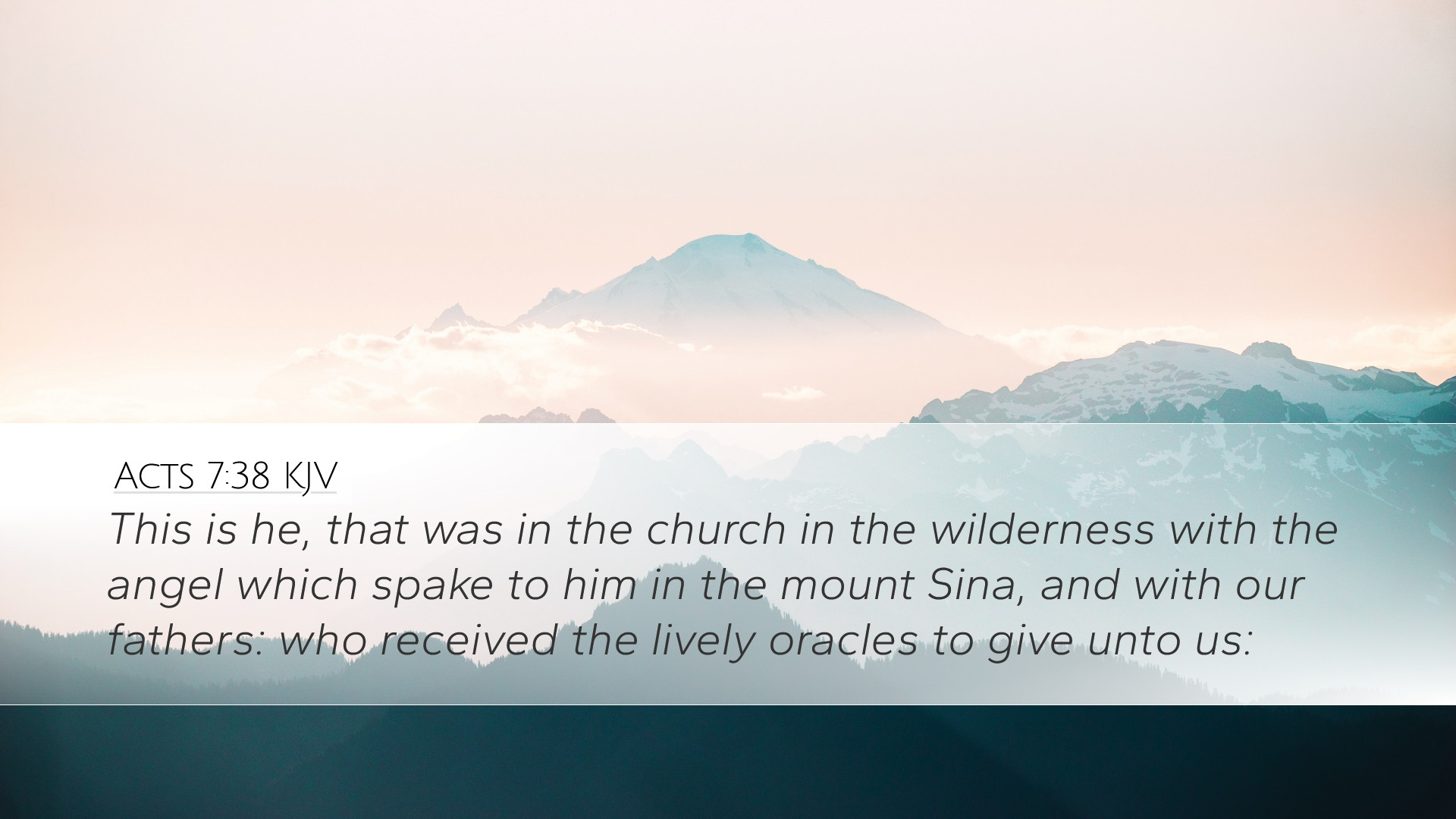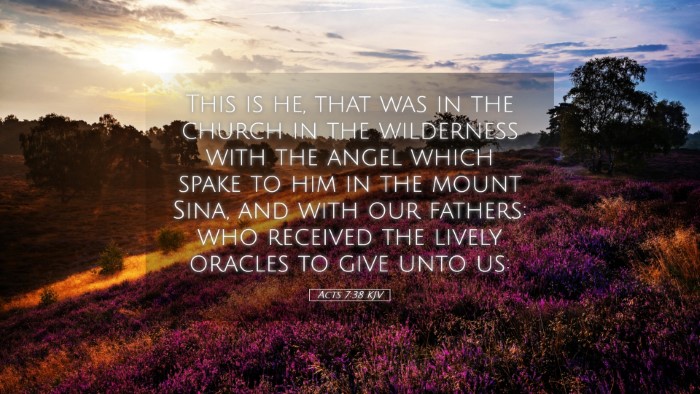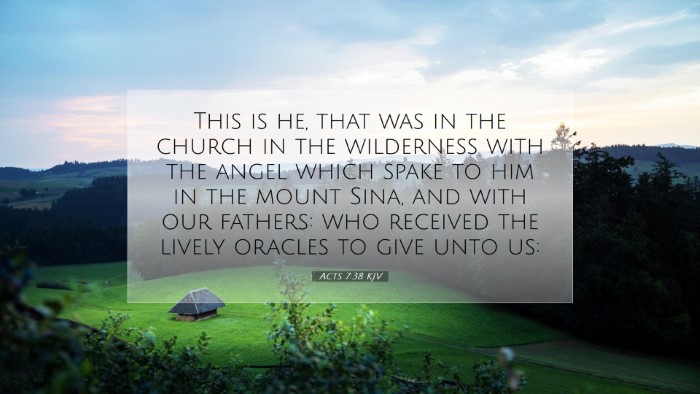Commentary on Acts 7:38
Bible Verse: "This is he that was in the church in the wilderness with the angel which spake to him in the mount Sinai, and with our fathers: who received the lively oracles to give unto us."
Introduction
Acts 7:38 is a pivotal verse where Stephen speaks before the Sanhedrin, recounting the history of Israel. This verse is significant for its theological implications and for what it reveals about God's presence and communication with His people. It simultaneously connects the story of Moses and the early church while highlighting the continuity between the Old and New Testaments.
Exegesis and Historical Context
In this passage, Stephen refers to the people of Israel as "the church in the wilderness," implying that the assembly of believers existed long before Christ founded the New Testament church. The term “church” (Greek: ekklesia) traditionally describes a gathering of the faithful, thus linking the experiences of the Israelites with those of early Christians.
The Role of Moses
Moses is highlighted as a key figure in God's redemptive plan. His encounter with God at Mount Sinai, where he received the Law, signifies the establishment of a covenant community. This makes it clear that God's revelation was not a New Testament phenomenon but extends back to the foundation of Israel.
Moses as God's Messenger
Moses served as an intermediary between God and His people, echoing the role of Jesus Christ in the New Testament. Albert Barnes comments on the nature of Moses' commission, noting that he was the prophet raised up to lead Israel out of bondage and into a promised inheritance. His life exemplifies obedience and faithfulness which resonated with the early church's mission.
The Significance of the Lively Oracles
The phrase "lively oracles" refers to the Word of God delivered through Moses. Adam Clarke remarks that these oracles represent not just lifeless commandments but are imbued with divine life and vitality. The oracles are not merely legal texts but are transformative, intended to lead people into a relationship with God.
Theological Insights
Stephen’s sermon serves as a foundation for understanding the continuity of God's redemptive history. He emphasizes the importance of recognizing God's sustained involvement with humanity throughout history, particularly through His chosen leaders and covenants.
Continuity of God’s Plan
Matthew Henry highlights that the God who spoke through Moses is the same God who speaks today through Christ and His apostles. The establishment of the old covenant through Moses prepares the way for the new covenant fulfilled in Christ, enabling believers to see their faith as part of a larger narrative.
This Age and the Next
The reference to the church in the wilderness invites reflection on the theme of pilgrimage. Just as Israel wandered in the desert, the church today is called to navigate through a world that is often hostile. This verse encourages perseverance and reliance on God's guidance, promising that His presence remains with His people.
Applications for Today
For pastors and theologians, Acts 7:38 serves as a reminder of the importance of the Word of God in guiding and shaping the community of believers. The 'lively oracles' challenge the contemporary church to engage deeply with Scripture, understanding its provision for life and growth.
Understanding Our Identity
The identity of the church as a continuation of the Israelite assembly calls for a reevaluation of how believers view themselves in the redemptive story. It invites modern believers to see their lives as part of God’s ongoing narrative.
The Importance of Leadership
Moses’ leadership is a model for pastoral care today. The traits of humility, servant leadership, and reliance on God for wisdom and direction are essential. Stephen's messaging underscores the call for leaders not just to lead but to cultivate an intimate relationship with God, allowing His voice to guide the congregation.
Conclusion
Acts 7:38 is rich with theological significance and practical application. It invites believers to reflect on their relationship with the God who is actively involved in redeeming His people throughout history. The connection made between the experience of Israel in the wilderness and the early church enriches the understanding of the Christian faith, ensuring that practitioners honor the sacred text that has been preserved through generations.


